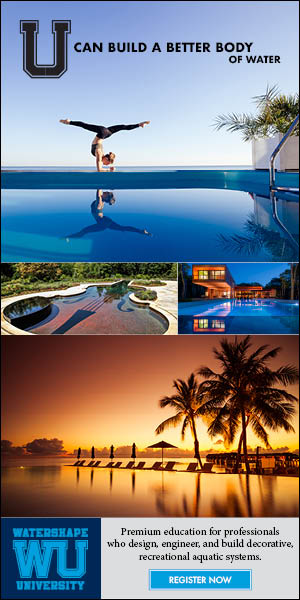Other Waterfeatures (from birdbaths to lakes)
I live in the Rocky Mountains of Colorado on the banks of the Arkansas River - a beautiful place and a beautiful river. Within easy reach of my home, the Arkansas flows swiftly in certain spaces, cascading over rugged terrain, then slows down in others to form deep pools that reflect brilliant skies and create a diversity of aquatic habitats. As I watch the river flow, sometimes I can't help thinking back to my days at a trout hatchery and recognizing that if we'd had such a volume of moving water available to us in our operation, we could have produced millions more pounds of healthy fish. I'm simply amazed by the power and complexity of the water I watch, and especially by its ability to
Interactive watershapes are all about invitations to play. For designers, interactive watershapes provide invitations to use water and the control of flowing water to create unique play environments. For children, teenagers, parents and other adults, they are invitations to play with one another in a safe and exciting aquatic playground. It's a form of invitation that's rapidly gaining popularity in an era when playtime for both children and adults has become excessively passive and dominated by surfing the net, playing computer games or staying glued to
As a designer and artist, I believe that water and glass walk hand in hand: Both are transparent and translucent. They distort and reflect surrounding colors and forms. And depending upon whom you ask, water and glass are both liquids. The visual and physical resonance between these two fascinating materials is important to me: I know that their interplay adds an entirely different dimension to my work that enhances the effects I can achieve using glass, metal and ceramics, so I'm always eager to explore artistic solutions when my customers want the project to include water. In this article, I'll examine three of my projects that use water to accentuate and reflect the sculpture while providing the soothing sounds that create an overall feeling of peacefulness in the surrounding space. But first, a bit more about what I do - and how I do it. AHEAD OF THE GLASS As with many forms of sculpture, working with glass requires technical know-how and, like many modern artists, I have acquired a background in construction and fabrication techniques. Back in school my
As customer demands continue to push the creativity of watershapers to new limits, industry professionals need to stay atop the trends - and nudge those of us on the supplier side to new levels of creativity as well. In some cases, this means learning how to construct new environments, such as the vanishing edges and beach entrances so many clients now want. In other cases, this expanded creativity comes from a need to know what products are available from manufacturers. Although once they were the product of on-site construction skills, sheeting waterfalls now fall largely into the category of
What is good lake construction? What makes some pristine and beautiful while others seem fetid and slimy? To discover the answer to these and other questions, we need to start by defining what we mean by "lake." It may seem arbitrary, but the distinction can be an important one, especially to people who own them. You don't want to insult anyone by calling their lake a pond or lagoon, for example. By the same token, you don't want to seem ill-informed or unprofessional in referring to their waterfeature as a lake. Given the different


















